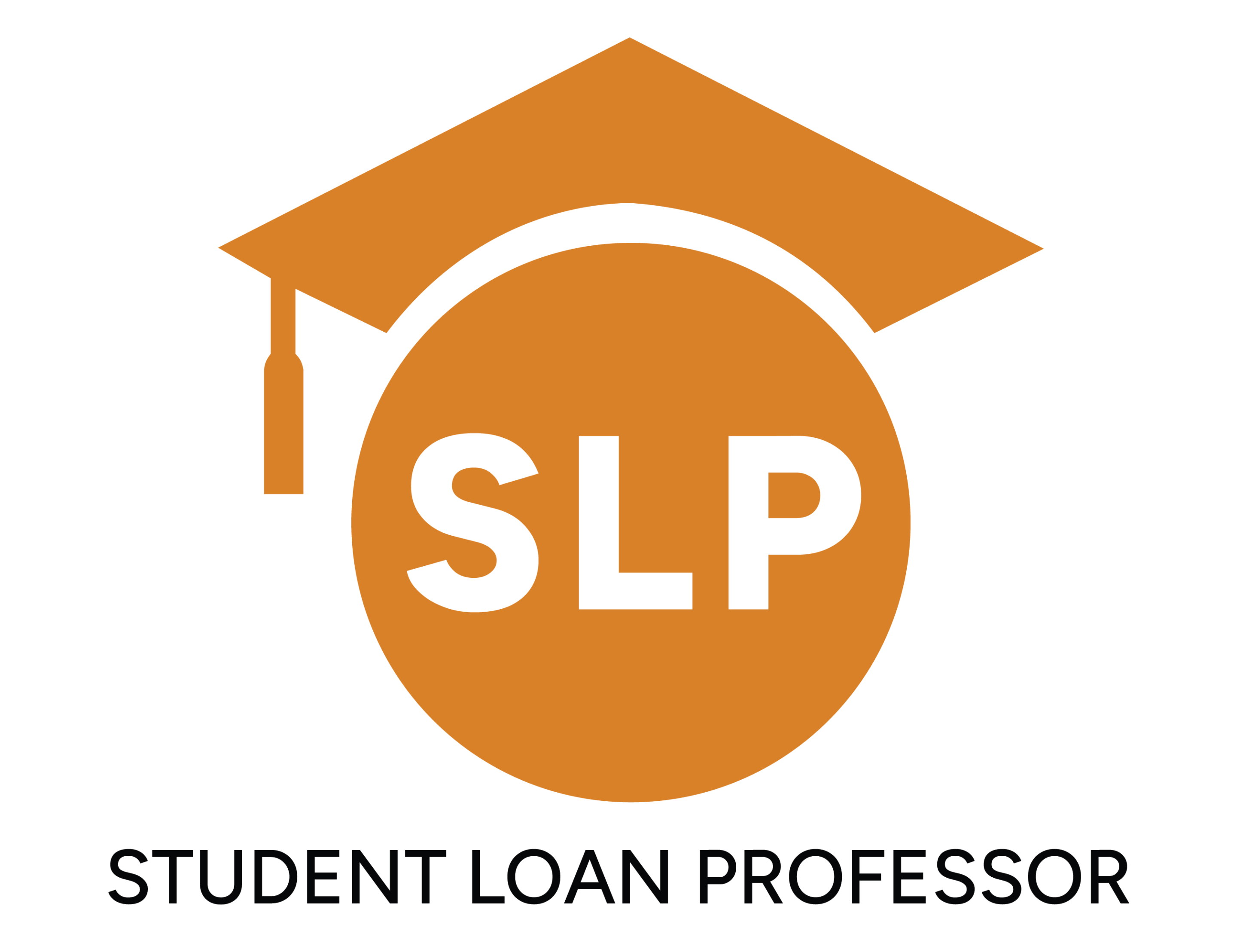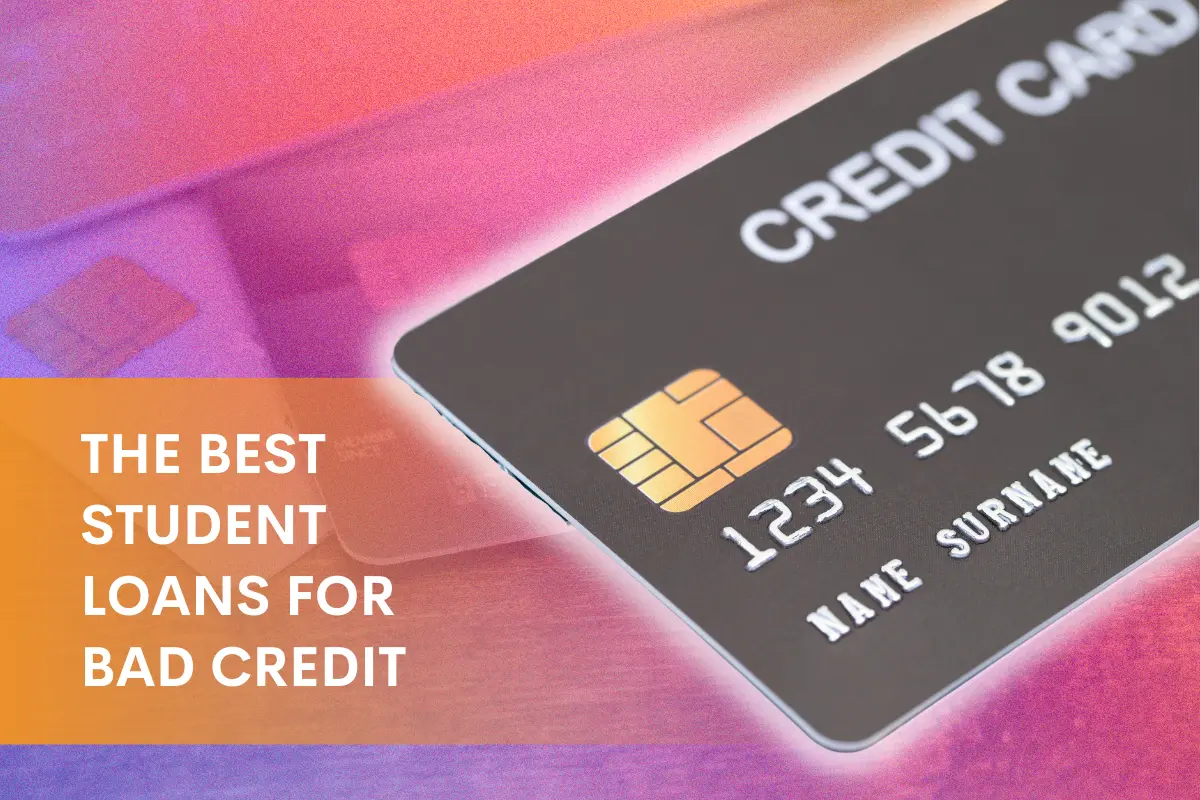Key Takeaways
- Federal student loans don’t require credit checks and offer fixed interest rates, making them ideal for borrowers with bad credit.
- Private lenders like Ascent and Sallie Mae provide co-signer options to improve approval chances and secure better rates.
- Lenders like Edly offer income-based repayment options, allowing borrowers to manage payments without needing a credit score.
- It’s important to compare APRs among lenders since rates can range from 3.47% to 17.99%.
- Scholarships, grants, and tuition reimbursement programs are great alternatives to minimize borrowing needs.
What Is Bad Credit?
Bad credit typically means a credit score below 580 on the FICO scale. Your credit score numerically represents your financial reliability as a borrower, determined by factors such as:
- Payment History: Whether you pay bills on time.
- Credit Utilization: The percentage of your available credit you’re using.
- Length of Credit History: How long you’ve been managing credit.
- Types of Credit: The mix of loans, credit cards, and other accounts you have.
- New Credit Inquiries: Applications for new credit can temporarily lower your credit score.
A bad credit score indicates to lenders that you are a high-risk borrower, which can make it harder to qualify for loans or secure the best interest rates.
Why Does Bad Credit Matter for Student Loans?
When applying for student loans, your credit history plays a significant role, especially with private lenders. Here’s why it matters:
- Loan Eligibility: Private lenders rely on credit checks to determine if you’re eligible for a loan. A poor credit score can result in loan denial or the need for a co-signer.
- Interest Rates: If you have bad credit, you may face higher interest rates, which increases borrowing costs.
- Federal vs. Private Loans: Federal loans don’t require a credit check (except for PLUS loans), making them ideal for students with an adverse credit history. Private student loans, however, use credit scores as a key factor for approval.
Federal Student Loans: The First Choice for Students with Bad Credit
Federal student loans are the go-to solution for borrowers with bad credit because they are not based on credit history. Instead, eligibility is determined through the FAFSA (Free Application for Federal Student Aid).
Types of Federal Loans
Direct Subsidized Loans
- Subsidized loans are available to undergraduate students with demonstrated financial need.
- The government covers interest during school and deferment.
Direct Unsubsidized Loans
- Unsubsidized loans are open to undergraduate, graduate, and professional students.
- Interest accrues from disbursement, but credit history is not a factor.
Direct PLUS Loans
- Parent PLUS loans are available to graduate students and parents of undergraduates.
- A credit check is required, but borrowers with adverse credit history can appeal or use an endorser.
Why Choose Federal Loans?
- There are no credit score requirements (except PLUS loans).
- Fixed interest rates, such as 6.53% for Direct Subsidized Loans and 8.08% for Direct PLUS Loans. These rates are not tied to your credit history.
- You might be eligible for income-driven repayment plans and loan forgiveness programs.
- No co-signer is needed since federal student loans are based on your financial need.
Private Lenders: Options for Borrowers with Bad Credit
When federal loans don’t completely cover your educational expenses, private student loans are an alternative. While most private lenders conduct strict credit checks, some cater specifically to borrowers with poor credit or no credit history.
Top Private Student Loan Lenders for Bad Credit
1. Ascent
Ascent stands out as one of the most student-friendly lenders, especially for borrowers with limited credit or no credit history.
It provides options tailored to students’ unique circumstances:
- Non-Co-Signed Loan: This option evaluates borrowers based on their future earning potential rather than credit score or financial history.
- Co-Signed Loan: Adding a co-signer opens access to competitive rates and improves approval chances.
- Interest Rate Flexibility: Borrowers can choose between fixed and variable interest rates. Fixed rates range between 3.69% and 14.41% (with autopay), while variable ones range between 5.50% and 14.56% (with autopay).
- Repayment Options: Deferred payments, interest-only payments, or fixed $25 monthly loan payments while in school.
- Incentives: Earn a 1% cashback reward upon graduation and receive a 0.25% discount for automatic payments.
Loan Types Offered:
- Undergraduate student loans (with and without a co-signer)
- Graduate loans
- No refinancing options
Best for: Students with no credit history who want alternative evaluation methods or the ability to borrow independently based on their future earning potential.
2. Sallie Mae
Sallie Mae remains a leading lender of private student loans, offering various borrowing options for students with bad credit.
Some of the main benefits of Sallie Mae for those with bad credit include:
- Co-Signer Support: Borrowers with bad credit can apply with a co-signer to access lower interest rates and improve loan approval.
- Multiple Loan Uses: Covers tuition, housing, books, and other education-related expenses.
- Grace Period Flexibility: Students can defer payments until 6 months after graduation.
- Loan Term Options: Loan terms range from 5 to 15 years with customizable repayment plans. Fixed APR rates start from 3.49% up to 15.49% (with autopay), while variable APR rates range from 4.92% to 15.08% (with autopay).
- Co-Signer Release: Allows co-signers to be removed after 12 months of on-time payments.
Loan Types Offered:
- Undergraduate and graduate loans
- Career training loans
- No refinancing options
Best for: Borrowers looking for a traditional private lender with flexible repayment and co-signer advantages.
3. Earnest
Earnest is ideal for students seeking personalized repayment plans and flexible credit requirements.
- Tailored Loan Terms: Borrowers can customize their repayment timeline down to monthly increments. Fixed APR rates range from 3.47% to 16.49% (with autopay, while variable ones range from 4.99% to 16.85% (with autopay).
- Interest Savings: Clients of the Student Loan Professor can receive a 0.25% discount when enrolling in autopay.
- Eligibility: Requires proof of enrollment, with slightly lenient credit checks compared to competitors. In most cases, a minimum credit score of 650 is preferred but optional.
- Pre-Qualification: Borrowers can check their rates without impacting their credit score.
Loan Types Offered:
- Refinancing loans
- Private student loans
- Personal loans
Best for: Students who want a highly customizable repayment plan and transparent eligibility terms.
4. College Ave
College Ave simplifies the borrowing process with a streamlined application and a variety of repayment options.
- Simple Pre-Approval: Check rates within minutes without affecting credit scores.
- Flexible Repayment: Options include deferred payments, interest-only payments, and full repayment while in school.
- Loan Term Variety: Choose terms between 5 to 15 years to tailor monthly payments.
- Interest Rates: Fixed APR rates range from 3.47% to 17.99% (with autopay), while variable APR rates range from 4.99% to 17.99% (with autopay).
Loan Types Offered:
- Undergraduate and graduate loans
- Career training loans
- Student loan refinancing
Best for: Students who prioritize speed, simplicity, and repayment flexibility.
5. LendKey
LendKey connects borrowers with local credit unions and community banks for more personalized service and competitive rates.
- Local Lender Advantage: Smaller lenders often provide better customer support and flexible repayment plans.
- Minimum Credit Score: Works with borrowers who meet lower credit thresholds.
- Interest Rate: LendKey offers competitive fixed and variable rates, with autopay, at 3.99% to 12.61% and 6.00% to 13.75%, respectively.
Loan Types Offered:
- Undergraduate and graduate student loans.
- Refinancing loans through local credit unions and community banks.
- Home improvement loans (which are unrelated to education loans).
Best for: Borrowers who prefer local lenders with more personalized customer service.
6. Edly
Edly offers a unique approach to student loans. Rather than traditional loans, it offers Income Share Agreements (ISAs). This allows students to repay based on their future income rather than a fixed monthly installment.
- Eligibility: Geared towards juniors, seniors, and graduate students in approved fields of study.
- Repayment Structure: Payments begin only after you earn a salary of at least $30,000 annually.
- Loan Amounts: Students can borrow up to $15,000 per academic year, with a maximum lifetime borrowing limit of $25,000.
- Interest Rates: Edly’s interest rates are income-based, but you expect to be within the 8.49% to 25.96% range.
Loan Types Offered:
- Undergraduate and graduate student loans (with or without a cosigner)
- Career training loans
Best for: Borrowers who want to avoid traditional loans and prefer repayment flexibility tied to income.
7. SoFi
SoFi is a private lender that focuses on helping students and their families manage educational expenses while providing excellent customer support.
- Interest Rates: Fixed APRs range from 3.54% to 15.99%, and variable APRs range from 5.54% to 15.99%, both with autopay discounts.
- Eligibility: Requires a credit score of at least 640, but adding a co-signer can significantly increase approval chances.
- Loan Amounts: Offers flexible borrowing limits with no maximum loan amount.
- Additional Perks: Access to free career coaching, networking events, and financial planning resources for borrowers.
Loan Types Offered:
- Private student loans
- Personal loans
- Mortgages
- Student loan refinancing
Best for: Students seeking additional financial guidance and value-added services alongside competitive loans.
8. MPower Financing
MPower is an excellent choice for international students and those without a credit history, as it eliminates the need for co-signers or credit checks.
- Eligibility: Offers loans to students attending more than 400 colleges and universities in the U.S. and Canada.
- Interest Rates: Fixed APR starts at 13.98% with a 0.25% discount for automatic payments.
- Loan Amounts: Borrow up to $100,000 with payments required during school in the form of interest-only installments.
Loan Types Offered:
- Private student loans, which are mainly for international students
Best for: International students and borrowers without a U.S. credit score.
9. Funding U
Funding U specializes in loans for undergraduate students without requiring a co-signer. Instead of relying on credit history, it evaluates academic performance and future earning potential.
- Eligibility: Available for U.S. citizens or permanent residents enrolled at least half-time in a four-year, not-for-profit college.
- Interest Rates: Fixed APR ranges from 7.49% to 12.99%.
- Loan Amounts: Students can borrow up to $20,000 annually.
- Repayment Options: Borrowers can opt for interest-only payments or $20 fixed payments during school.
Loan Types Offered:
- Undergraduate loans
Best for: Independent students without access to a co-signer.
How to Choose the Best Student Loan for Bad Credit
If you have bad credit, there are four main steps to consider before choosing a student loan:
1. Start With Federal Loans
A federal student loan should be your first choice since it doesn’t require a credit check (except for PLUS loans) and offers benefits that private loans cannot match, such as lower interest rates and forgiveness programs.
Undergraduate students should start by applying for Direct Subsidized and Unsubsidized Loans through the Free Application for Federal Student Aid (FAFSA).
Graduate students or parents can explore PLUS Loans, though they require an adverse credit history check.
2. Evaluate Private Loans for Gaps in Funding
If federal loans don’t cover your entire cost of attendance, consider private student loans. However, private lenders will take your bad credit into account when structuring your loan terms and setting your interest rates, so make sure to:
- Compare Interest Rates: Private loans often have variable APRs starting around 3.47% and can go as high as 17.99%. Fixed APRs offer more stability but usually have higher initial rates.
- Leverage a Co-Signer: To lower your interest rates, look for lenders offering co-signer release options after a set number of on-time payments, such as Sallie Mae or College Ave.
- Consider Repayment Flexibility: Some private lenders, like Ascent and Earnest, offer deferred payments, interest-only payments, or even income-driven repayment plans to make monthly installments manageable.
3. Assess Loan Amounts and Coverage
Federal loans have annual and lifetime borrowing limits, with undergraduates capped at $57,500 (only $23,000 of which can be subsidized).
If these limits don’t cover your costs, private lenders may provide higher funding amounts, such as Ascent, which offers up to $200,000, depending on the loan type.
Ensure the loan covers not just tuition but also housing, books, and other essential expenses.
4. Weigh Additional Perks and Resources
Some lenders go beyond funding by offering value-added benefits that can enhance your borrowing experience, such as:
- Cashback Rewards: Ascent provides a 1% cashback reward upon graduation.
- Career Support: SoFi offers free career coaching and networking events.
- Automatic Payment Discounts: Many lenders, including Earnest and MPower, reduce your interest rate by 0.25% when enrolling in autopay or if you sign up through the Student Loan Professor.
Alternatives to Student Loans for Bad Credit
If you’ve tried most federal student loans and private lenders to no avail, you can explore alternatives, such as:
- Scholarships and Grants: Unlike student loans, these funds don’t require repayment. Use platforms like Fastweb or consult your school’s financial aid office for opportunities.
- Work-Study Programs: These provide part-time jobs on campus to help cover educational expenses.
- Tuition Reimbursement Programs: Employers like Amazon and Starbucks sometimes offer tuition assistance to part-time employees.
- Personal Loans: Although riskier due to higher interest rates, personal loans can be a last resort if you can’t secure bad-credit student loans.
Secure the Right Bad-Credit Student Loan Today
Bad credit doesn’t mean you can’t get a student loan. Whether you’re leaning towards a federal or private loan, the Student Loan Professor can help you compare your options. Contact the Student Loan Professor today, and we’ll help you find the right loan that suits your financial situation.
Brandon Barfield is the President and Co-Founder of Student Loan Professor, and is nationally known as student loan expert for graduate health professions. Since 2011, Brandon has given hundreds of loan repayment presentations for schools, hospitals, and medical conferences across the country. With his diverse background in financial aid, financial planning and student loan advisory, Brandon has a broad understanding of the intricacies surrounding student loans, loan repayment strategies, and how they should be considered when graduates make other financial decisions.



![Our Honest Thoughts On Aidvantage Student Loans [For 2025]](https://www.studentloanprofessor.com/wp-content/uploads/2024/10/SLP_fallback_2-no-logo-400x250.jpg)

